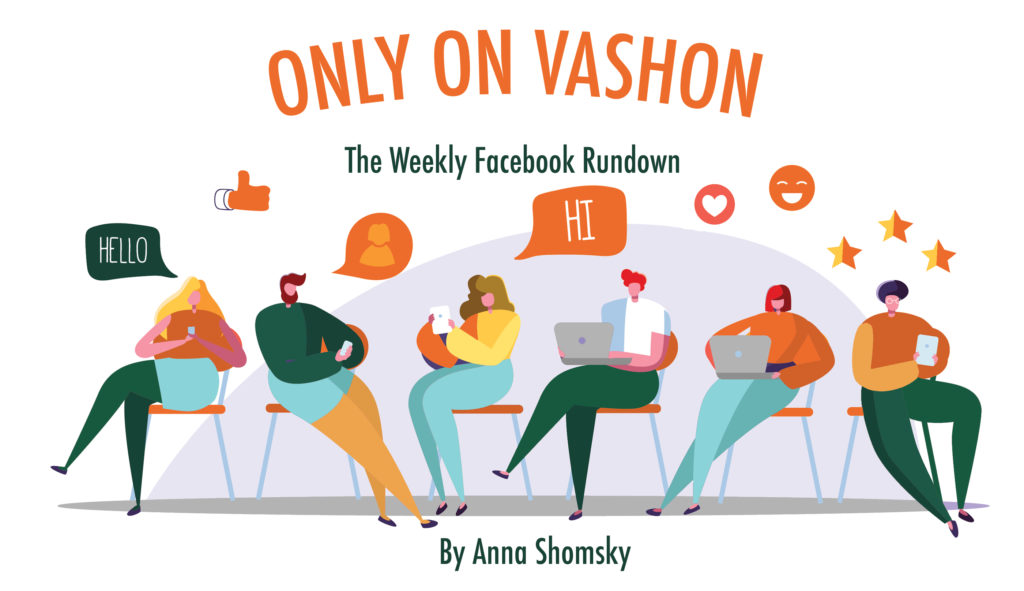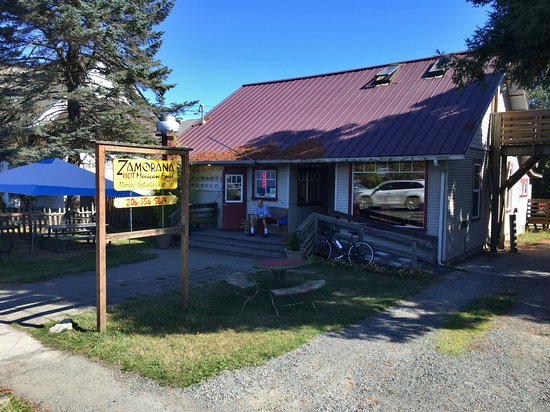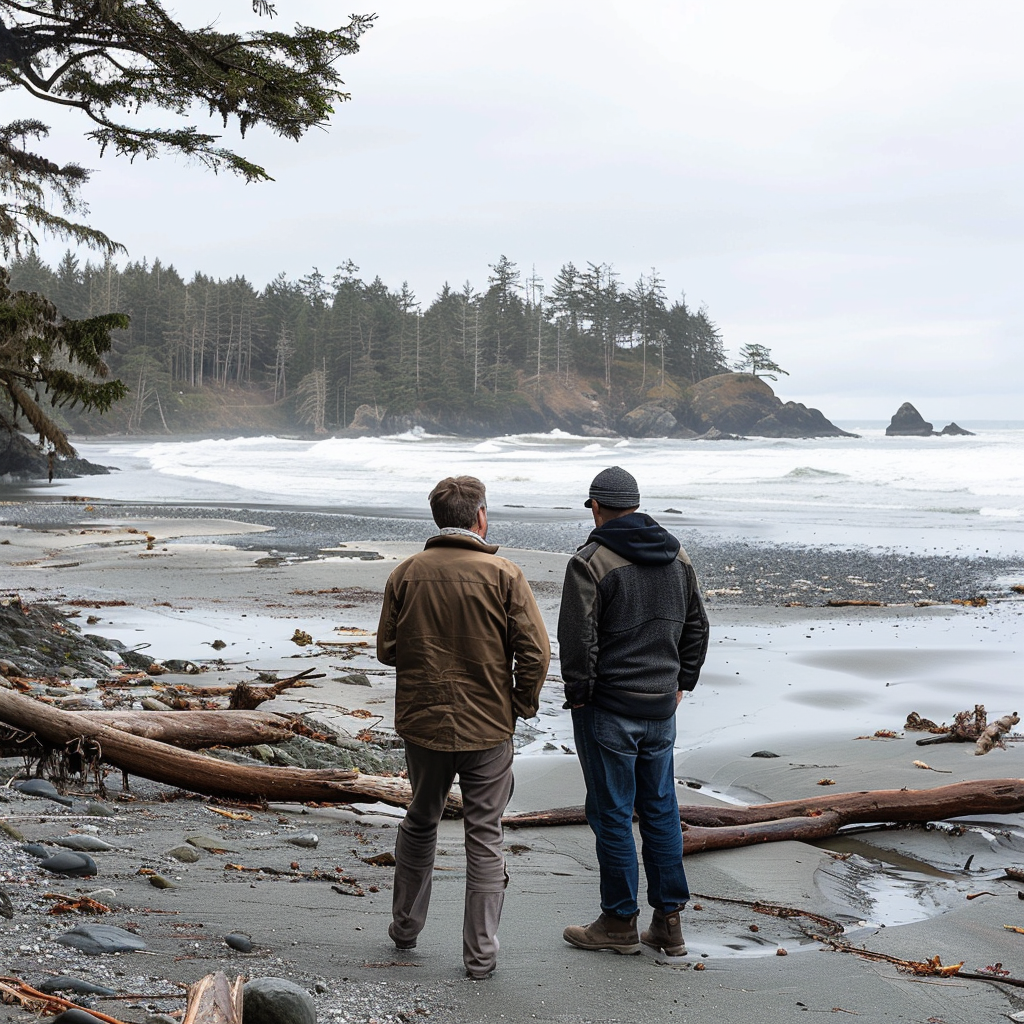Vashon Island has a whole Facebook group dedicated to being prepared. As a Vashonite, I think it’s a good idea to be prepared. We always live with potential disruptions—broken ferries, earthquakes, snow or ice storms. We’re always told to be prepared, so how prepared was I to be isolated by a pandemic?
I really thought I was prepared. After all, we can get snowed in for five days any time between November and April. I’ve read all the material from the local disaster preparedness groups. I have batteries and emergency heat and lighting. I understand about earthquakes and how they can cut me off from the mainland. I thought I had what I needed to be prepared to stay home.
As a senior citizen who is also a cancer survivor, I know I have some risk factors. My cancer treatment left me with some serious limits. All my life, I’ve had to consider my asthma before I go out. I should be prepared.
All of a sudden, seniors and people with health issues and breathing problems are supposed to stay home. So, how is this Vashonite doing? First the good news, we’re fine on TP. I picked up some at Costco the first of February. We’re good. We also have a bidet attachment on one toilet. If we get low on TP, we can cope. I buy beef by the quarter, so meat is fine.
Pet food has been a semi-failure. The allergic cat ran low on food a few days into my self-isolation. I can buy his food by the case on-line and have done so. I needed to order 10 days in advance, but he’d been eating more than usual and suddenly didn’t have ten days worth of food left. I went out to the pet-food store to buy him more food. The other day, hubby said the ducks had only one day of food left. Dang, I could have gotten duck food on the trip out for cat food, but I didn’t check the duck food. What I learned; To be prepared, I need to make sure I have enough pet food on hand. Storage isn’t a problem for me, so I can do this.
I can’t believe we ran low on fresh veggies. I own a farm. We are usually up to our eyeballs in fresh veggies. However, the garden isn’t all that productive this time of year. Collard greens were the main crop I was harvesting from. We’d scheduled workers to redo the raised bed the collards were growing in on March first, so I harvested the tops and pulled the plants up. I did put the greens in the vegetable crisper. From there, they went into stir-frys and soup. I seldom buy canned or frozen veggies, so we were suddenly low. I have some kale, and there is still a leek out there, but I’d say I wasn’t prepared for a quarantine. I need to rethink my garden to be certain this doesn’t happen in the future. I should have had kale, overwintered cabbage, leeks, sun chokes, and collards. I do have dahlias. I could dig the tubers and eat them if I’m desperate, but I’d rather sell the tubers for flowers. People who buy canned and frozen veggies won’t have the problem of a sudden shortage in late winter, but I thought my gardens were a protective factor. What I learned: Even with a year-round gardens, gaps in production can place us at-risk for a food shortage if something else goes wrong in the garden.
Okay, but we were still good on meat, flour and toilet paper. Was there somewhere else I wasn’t prepared? Can you believe that on the second day of self-isolation the clothes dryer died? I think it died because the washing machine was too old and tired to spin fast enough to get much water out of the clothes. The dryer was working too hard. Both machines were twenty-five years old. I immediately tried buying new machines on-line. I couldn’t get them delivered. We finally ended up going to an appliance store. That wasn’t too bad. The store was mostly deserted. We didn’t have much of an exchange with the clerk who rang us up and handed us a receipt. Our big exposure to other people came when we got the machines home and needed help unloading them and setting them up. This involved interacting with neighborhood volunteers, touching common surfaces, putting heads together and grunting. What I learned about being prepared is that having old appliances that are on their last legs isn’t being prepared.
This Vashonites is careful about keeping her prescription medicines up to date with an emergency supply in the background. I’m good on the medication that keeps me alive, and my cancer from coming back. I have another medication I use occasionally. It’s not covered by my insurance and is ghastly expensive. Most of the time, I can get by on cheaper stuff. Of course, my over-the-counter allergy medication isn’t covered by insurance, but I only need that occasionally. I’m cheap, so I hadn’t restocked the things I don’t need daily. So a week into the self-isolation, I’d been out of the house more than I usually am. It may have been the extra chores or wrestling new appliances that sent me into a flare from my compromised immune system. I really needed my expensive prescription. Next, the red oaks bloomed, and I developed a cough and runny nose. I kept telling myself the symptoms weren’t due to Covid-19, but I still worried. I also knew I must go out, yet again, to get the two medications I needed. What I learned is that I was prepared with a good supply of the medication I need most. I wasn’t even close to being prepared for the occasional immune flare and seasonal allergies.
I do see some shortages in my future. I anticipate running out of bacon and chocolate. The bacon problem won’t be too bad. I may have to go out for chocolate.
I don’t want to say I’m a failure at preparedness, we could have gotten by without those few trips out. However, as far as being prepared, at least I’m learning how to do better. I hope I’m ready for complete lockdown.





